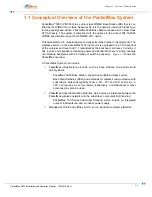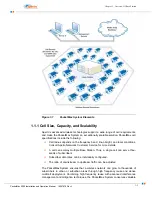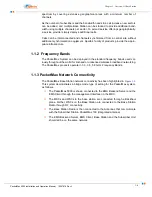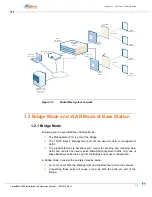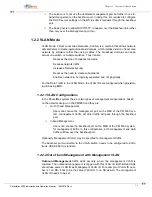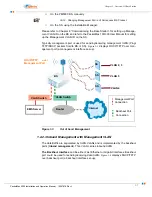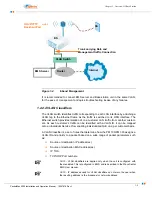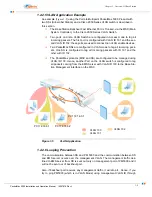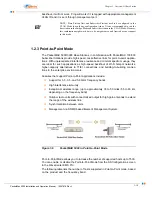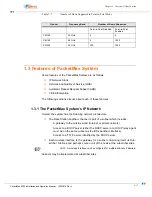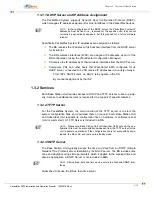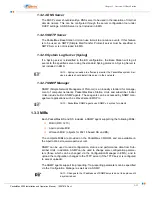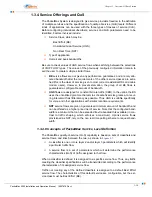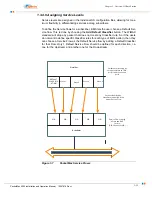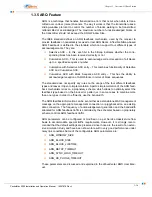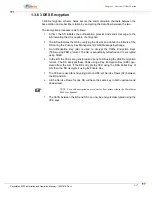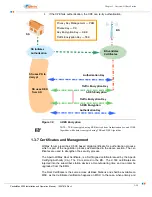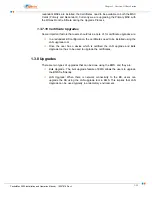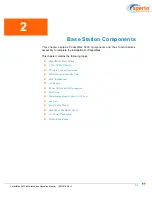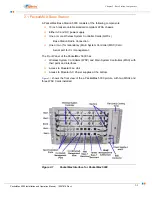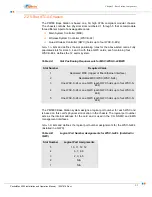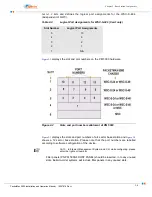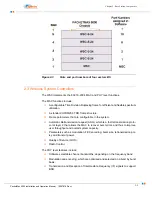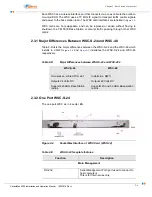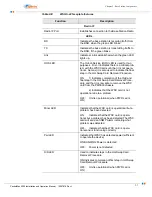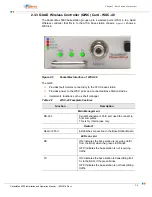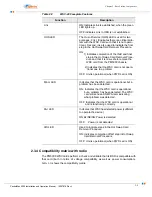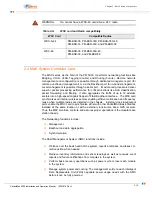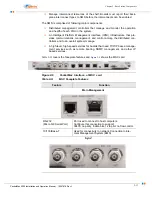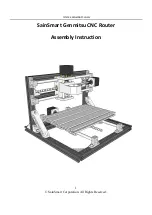
1–16
PacketMax 5000 Installation and Operation Manual, 10007678 Rev J
Chapter 1. Overview Of Base Station
1.3.5 ARQ Feature
ARQ is a technique that handles transmission errors that occur when data is trans-
mitted over unclear (noise) channels. The way it works is that, the transmitter uses a
sliding-window protocol to control the number of blocks waiting to be transmitted,
retransmitted or acknowledged. The maximum number of unacknowledged blocks at
the transmitter should not exceed the ARQ Window Size.
The IEEE standard defines an ARQ feedback mechanism, used by the receiver to
provide feedback on ceaselessly received or lost ARQ blocks. A flexible bitmap-based
ARQ Feedback is defined in the standard which can support four different types of
acknowledgements. They are:
Selective ACK – In this, each bit in the bitmap indicates whether the corre-
sponding block has been received correctly or not
Cumulative ACK – This is used to acknowledge correct reception of all blocks
up to a specified sequence number
Cumulative with Selective ACK entry – This combines functionality of Selective
ACK and Cumulative ACK.
Cumulative ACK with Block Sequence ACK entry – This has the ability to
acknowledge reception of ARQ blocks in terms of block sequences.
The standard does not specify any rules on the usage of the four different feedback
types and leaves it open to implementation. Aperto’s implementation of the ARQ feed-
back mechanism relies on a proprietary scheme, which allows to optimally select the
feedback type based on the block error pattern or in some cases to combine more
than one types in order to efficiently use the bandwidth.
The ARQ feedback information can be sent either as a standalone MAC management
message on the appropriate management connection, or piggybacked on an existing
data connection. The frequency of acknowledgement generation and the bandwidth
allocated for ARQ feedback traffic is controlled by the scheduler based on proprietary
scheme controls ARQ feedback traffic.
ARQ parameters can be configured or modified on a per Service class/service flow
basis to accommodate special traffic requirements. However, it is strongly recom-
mended that the default settings are preserved since those are the result of an exten-
sive simulation study and have been shown to result in very good performance under
noisy link conditions.Some of the configurable ARQ parameters are:
ARQ_WINDOW_SIZE
ARQ_BLOCK_SIZE
ARQ_BLOCK_LIFETIME
ARQ_RETRY_TIMEOUT
ARQ_SYNC_LOSS_TIMEOUT
ARQ_RX_PURGE_TIMEOUT
These parameters are discussed and explained in the
WaveCenter EMS User Man-
ual
.
Содержание PacketMAX 5000
Страница 10: ...Preface Preface vi PacketMax 5000 Installation and Operation Manual 10007678 Rev J ...
Страница 14: ...Table Of Content TOC 4 PacketMax 5000 Installation and Operation Manual 10007678 Rev J ...
Страница 38: ...1 20 PacketMax 5000 Installation and Operation Manual 10007678 Rev J Chapter 1 Overview Of Base Station ...
Страница 64: ...2 26 PacketMax 5000 Installation and Operation Manual 10007678 Rev J Chapter 2 Base Station Components ...
Страница 104: ...5 16 PacketMax 5000 Installation and Operation Manual 10007678 Rev J Chapter 5 Commissioning the Base Station ...
Страница 114: ...A 10 PacketMax 5000 Installation and Operation Manual 10007678 Rev J Chapter A Event Reporting ...
Страница 124: ...C 6 PacketMax 5000 Installation and Operation Manual 10007678 Rev J Chapter C Cables Spares and Accessories ...
Страница 146: ...E 4 PacketMax 5000 Installation and Operation Manual 10007678 Rev J Chapter E Certifications ...
Страница 150: ...F 4 PacketMax 5000 Installation and Operation Manual 10007678 Rev J Chapter F Troubleshooting ...

